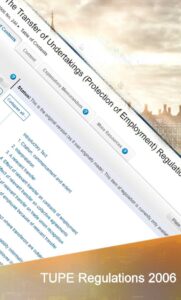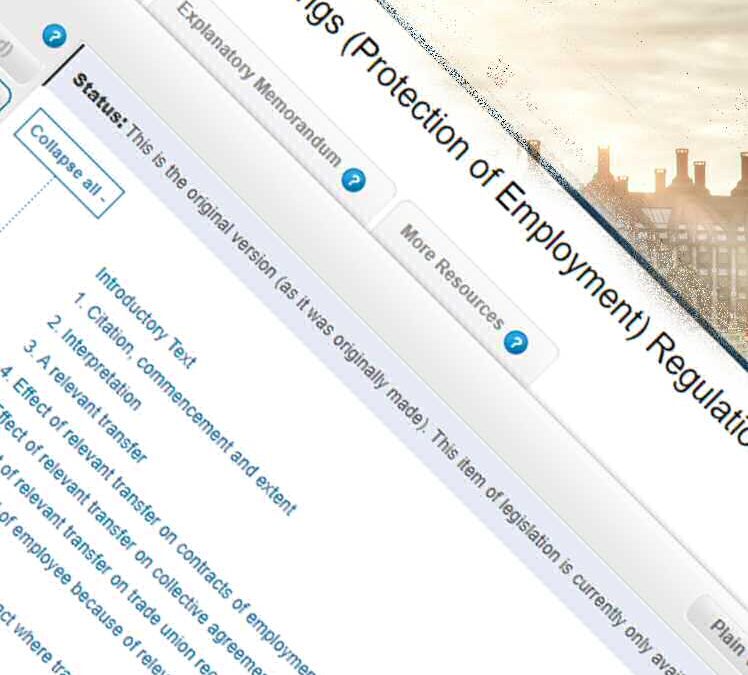
TUPE is a complicated area of law and if you do not comply fully with the rules, or take time to consider the consequences carefully, it can be expensive and disastrous for those buying or selling their businesses.
If you are going to buy, sell, or transfer the ownership of a business or take on a contract or change the terms of a service provider, you should ensure you take legal advice.
Key issues upon a TUPE transfer to consider:
- To qualify there will be an ‘organised grouping of resources with the purpose of pursuing an economic activity’ that is being transferred (so a TUPE can be considered to have taken place be it one employee has transferred or equally hundreds of staff and all the assets and premises);
- The employees that are part of the organised grouping are automatically transferred to the new company (there is no discretion between the transferor & transferee to alter this and you could be liable for redundancy or unfair dismissal claims if not handled correctly);
- The terms & conditions that the employees had immediately before the transfer will continue with the new employer unless you offer more favourable terms or offer consideration that is agreed;
- Any dismissal associated with the transfer will automatically be unfair, unless this can be shown to be for an ‘economical, technical, or organisational (ETO) reason’ being a fair and honest redundancy for example;
- Both the old employer (the transferor) and the new employer (the transferee) have obligations to consult with the staff before and during the transfer; and
- The transferor must provide information about those employees to be affected not less than 14 days before the transfer.
Inform & Consult
Information that must be provided to the representatives/employees before consultations commence include:
- The fact that the transfer is to take place, (proposed) date, and the reasons for it;
- The implications of the transfer for any affected employees;
- Any measures the employer envisages he will take in relation to any affected employees (or advising if there are expected to be none); and
- Any envisaged measures that the new employer is envisaged to take after the transfer.
Due Diligence between the buyer and seller A transferor has to provide to transferee:
- The name and age of the employees;
- The statement of particulars/employment contracts;
- Information of any disciplinary procedure taken against an employee (within two years);
- Grievance procedures taken by an employee (within the previous two years); Information of any court or tribunal case brought by an employee against the transferor (within the previous two years);
- Facts that the transferor has reasonable grounds to believe that an employee may bring against the transferee, arising out of the employment;
- Details of any collective agreements which will have effect after the transfer; and
- Any changes to the above information after it is provided to the transferee.
Pitfalls to Avoid
New employers cannot decide to commence a probationary period for their new staff if the employees have continuous service from their previous employment.
If an employee refuses to transfer, they are deemed to have resigned, and there is no obligation on the transferor to offer alternative employment.
With respect to enforcing equal employment standards between current employees of the transferee & newly transferred employees, the respective employment terms that existed before the transfer remain and any changes must follow an appropriate consultation & agreement.
Whether you are buying, selling, or transferring a business or changing the supplier of a service provision, you should get professional advice about TUPE to avoid costly employment tribunal claims later.
For more information contact us…
0207 426 0382
enquiries@acitylawfirm.com
” ”

